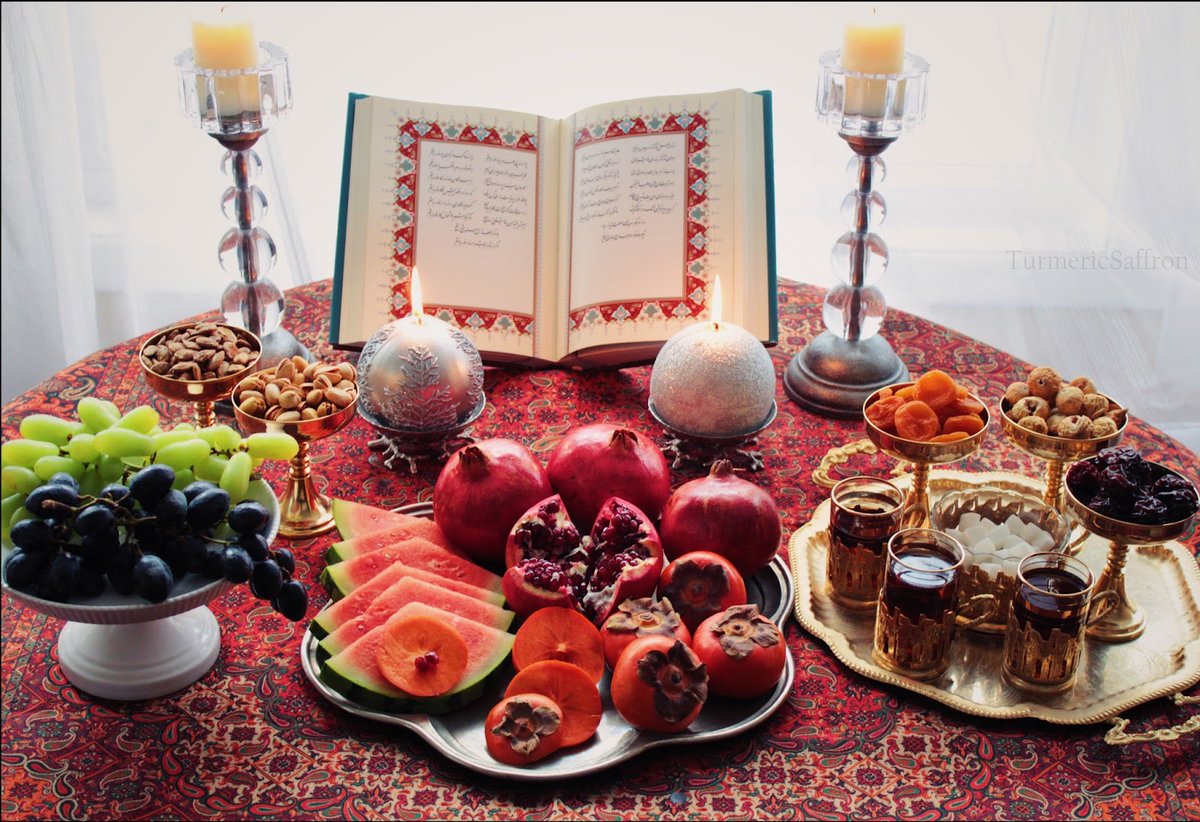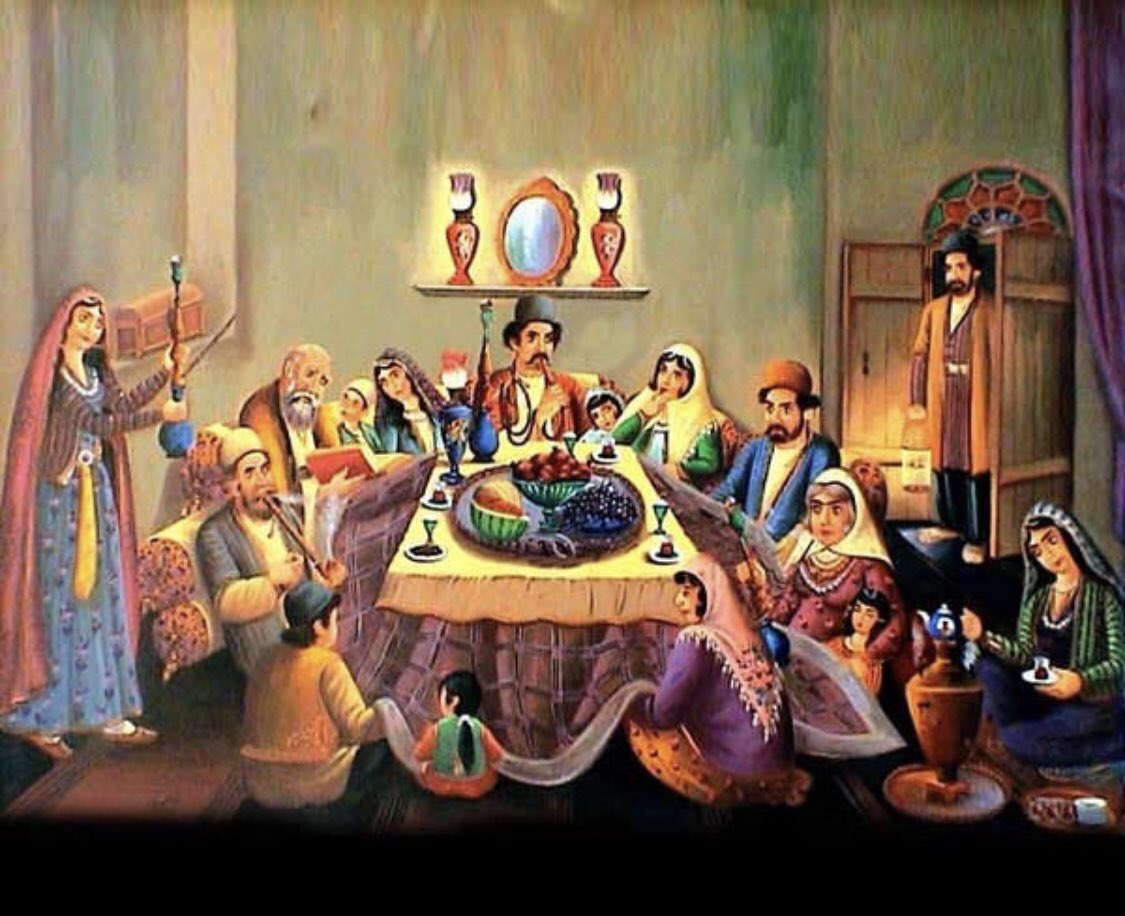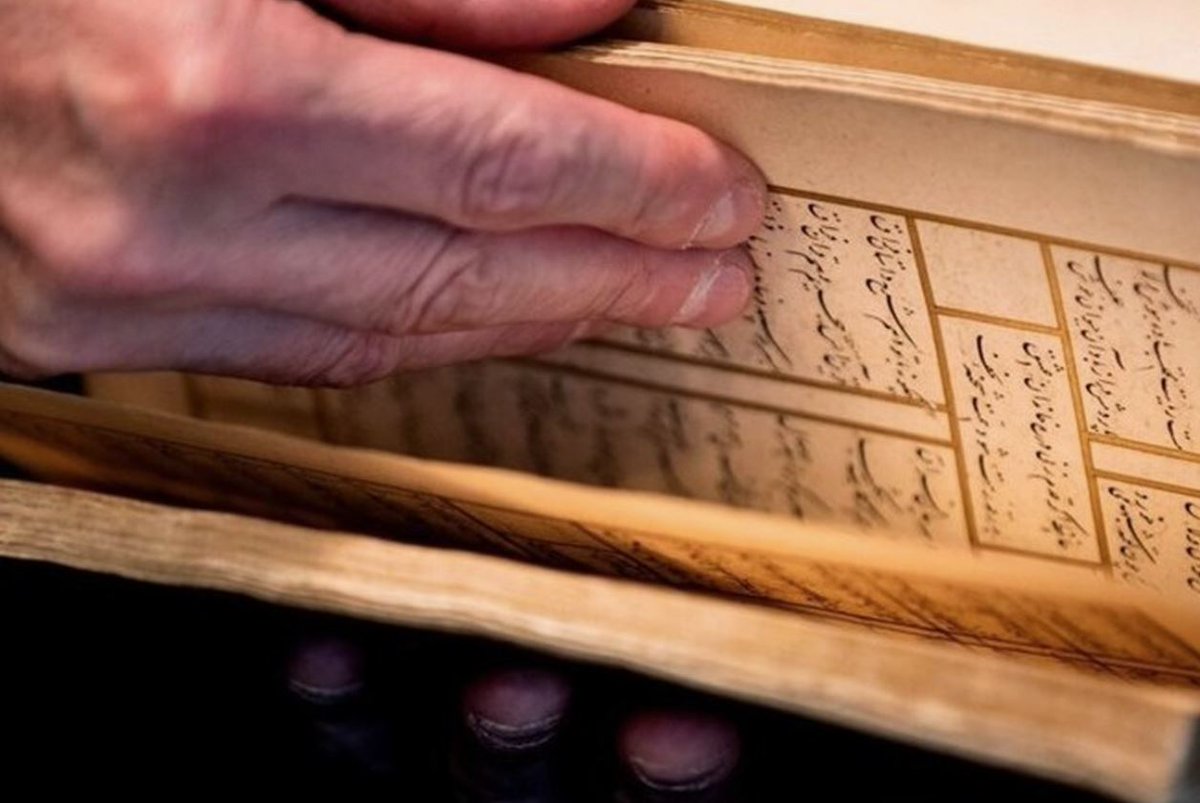Thread: Tonight is the longest and darkest night of the year. Iranic peoples and neighboring groups call it 'Shab-e Yaldā' and spend the night in celebration, but why is the winter solstice important to them? (1/7)
Shab-e Yaldā or Shab-e Chelleh is the twentieth/twenty-first of December, or the end of the ninth month (Azar) in the Iranian calendar. Iranic peoples stay up eating pomegranates, watermelons, nuts, sitting under a heated table called a 'korsī.' (2/7)
Persian speakers also do bibliomancy with Hafez's dīvān (book of poems). Readers randomly pick a poem from his dīvān for each person present to predict what their life has in store. The practice is called 'fāl-e hāfez.' (3/7)
Yaldā marks the beginning of the first forty nights of winter, hence its first name Shab-e Chelleh (Fortieth Night). Intervals of forty-days are significant in Iranic culture: Sufis go into forty-day seclusions, and relatives visit the deceased forty days after burial. (4/7)
Chelleh began as a Zoroastrian practice. Zoroastrians believed that the Ahriman (evil spirit) was most active during the night, so they would stay awake with company during the longest night to stay safe, eating what remained of that year's harvest. (5/7)
Chelleh took its second name 'Yaldā' in the first century when Christians settled in Persia to avoid religious persecution. The Christians celebrated Christmas, which they called 'Yaldā,' meaning birth in Syriac (cognate to the Arabic w-l-d). (6/7)
Do you celebrate Shab-e Yaldā? If you do, let us know what city and ethnic group you hail from, and what you do to celebrate. (7/7)

 Read on Twitter
Read on Twitter




